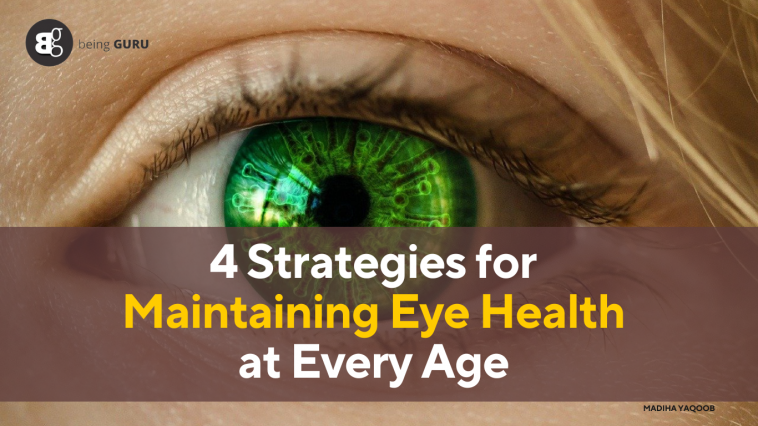Maintaining eye health is crucial at every stage of life, from childhood through your golden years. For instance, studies show that vision issues can impact children’s academic performance. Meanwhile, according to a Lancet report on Global Eye Health, vision impairment among the rest of the population reduces mobility, affects mental well-being, exacerbates the risk of dementia, increases the likelihood of falls and road traffic crashes, increases the need for social care, and ultimately leads to higher mortality rates.
In short, our eyesight plays a fundamental role in enhancing our overall quality of life, no matter what our life stage. This underscores the need for adopting healthy habits to help preserve vision and prevent age-related eye conditions. Here are four strategies for maintaining optimal eye health at every age:
Protect your eyes from UV radiation
Ophthalmologist and spokesperson of the American Academy of Ophthalmology (AAO) Dr. Michael Kutryb stresses that UV radiation from the sun can damage the eye’s surface tissues as well as the cornea and lens. This damage can happen at any age and lead to conditions like cataracts, macular degeneration, and photokeratitis. Thus, protecting your eyes from harmful UV rays is essential regardless of how old you are.
For this, the AAO suggests wearing sunglasses that block 100% of UVA and UVB rays whenever you’re outdoors, even on overcast days. To guarantee total eye protection, opt for sunglasses from established brands like Ray-Ban and Oakley, which are typically equipped with UV400 protection.
Maintain a healthy and active lifestyle
Many may be surprised to learn that exercise can help prevent certain eye diseases, including age-related cataracts. Moreover, regular exercise has been linked to improved eye health among patients with existing eye diseases. To harness these benefits, the Department of Health recommends that adults incorporate 150 minutes of moderate-intensity aerobic exercise each week. This can be in the form of speed walking, cycling, or water aerobics.
Additionally, eye doctors urge everyone to avoid smoking and limit alcohol consumption, as both habits can increase the risk of developing eye diseases.
You might also like: 6 Habits that are damaging for your brain
Schedule regular eye exams
Regular eye exams are crucial for monitoring eye health and detecting potential problems early on, regardless of your age. Generally, during an eye exam, an eye doctor will assess your vision, screen for eye conditions, and recommend appropriate treatment or corrective measures. The American Optometric Association recommends undergoing annual eye exams for all adults 18 and older, which are now more accessible than ever thanks to reputable optical chains with online booking portals.
In addition to simple booking processes, Target Optical also accepts insurance for its eye exams. Just be sure to check for your insurance provider on their website to confirm your eligibility. Then, you’ll simply enter your insurance details and click “Schedule an exam” to book an appointment with Independent Doctor of Optometry.
Prioritize getting good sleep
During sleep, the eyes are given a chance to rest and recharge, allowing them to recover from the strain of daily activities. Conversely, insufficient sleep can negatively affect eye health. In fact, one study reveals that sleep deprivation can cause the cornea to lose its ability to repair itself properly, which may lead to issues such as dry eyes. Doctors recommend that adults get at least seven hours of quality sleep per night to support overall health.
If you have trouble falling asleep, try creating a relaxing bedtime routine and avoid using digital devices an hour before sleeping. Instead, you can practice meditation or do some nighttime yoga to keep your body in a more relaxed state.
Maintaining optimal eye health is a lifelong commitment that requires proactive care and attention to healthy habits. Using these simple strategies, you can safeguard your vision and enjoy clear eyesight at every stage of life.





